Welcome to Jiangsu DZX Factory.
Email:dlx@dlx-alloy.com Mobile/Whatsapp:+86 199 0611 9641
Professional manufacturer of welding wires and spraying wires,over 22 years.
Welcome to Jiangsu DZX Factory.
Email:dlx@dlx-alloy.com Mobile/Whatsapp:+86 199 0611 9641
Professional manufacturer of welding wires and spraying wires,over 22 years.
Contact:Jason
Whatsapp:+8619906119641
Email:dlx@dlx-alloy.com
Add:NO.32 West Taihu Road, Xinbei District, Changzhou, Jiangsu,China
Copper Welding Wire
Product Details
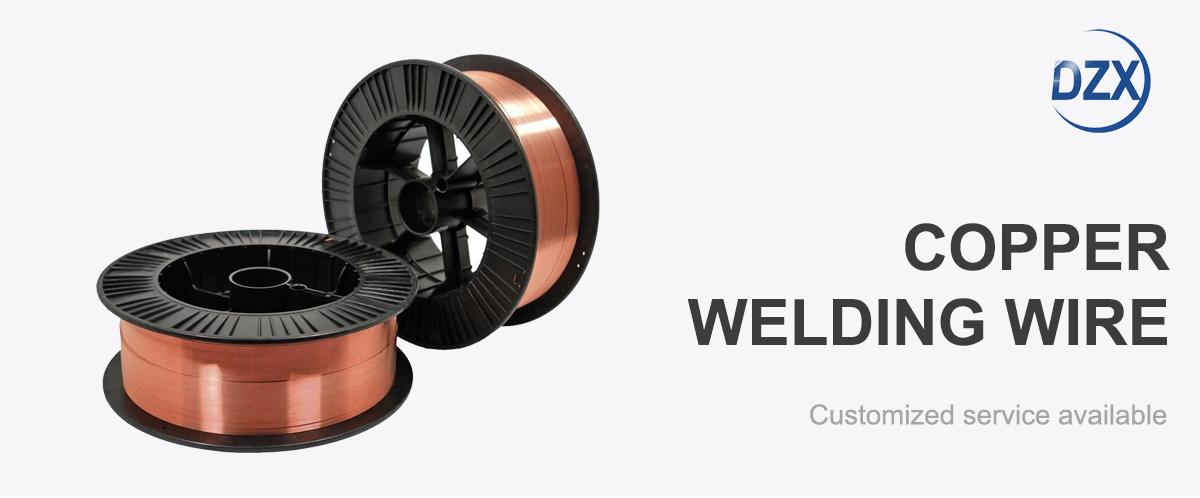
Our ERCuNi 5Fe1 TIG welding wire is a copper-nickel alloy designed for tough jobs like seawater pipeline welding. With roughly 5% nickel and 1% iron, this wire delivers strong, corrosion-resistant welds that stand up to harsh marine environments. It’s tailored for TIG welding, offering a stable arc and clean bead appearance with minimal spatter. Perfect for joining copper-nickel alloys (like 90/10 or 70/30 Cu-Ni) or dissimilar metals, it’s a go-to for marine, chemical, and power generation applications where reliability is critical.
We’ve crafted our ERCuNi5Fe1 wire to excel in corrosive settings, especially seawater. The nickel and iron boost corrosion resistance and weld strength, with tensile strength around 50,000-60,000 psi. It’s ideal for welding copper-nickel alloys or stainless steel to carbon steel, ensuring crack-free, durable joints. The wire’s smooth flow and stable arc make it easy to work with, whether you’re welding by hand or using automated systems. It’s built to handle the salty, wet conditions of marine pipelines and equipment without breaking a sweat.
The copper-based welding wire market is on the rise, expected to hit USD 4.5 billion by 2030 with a 5.5% CAGR. Marine and chemical industries are driving demand, needing materials that resist corrosion in aggressive environments like seawater or acidic chemicals. Copper-nickel alloys like ERCuNi5Fe1 are in high demand for their durability and compliance with strict industry standards. As offshore projects and renewable energy (like wave and tidal systems) grow, reliable welding solutions for seawater-exposed equipment are more critical than ever.
For more other size details, pls directly contact us
| AWS Classification | Applications |
| ERNiCr-3 | Used for welding 600, 601, and 800 alloys and dissimilar welding between stainless steel and carbon steel |
| ERNiCrFe-7 | Suitable for welding nickel-chromium-iron alloys under ASTM B163, B166, B167, and B168 standards |
| ERNiCrFe-6 | Designed for welding steel to nickel-chromium-iron alloys, as well as stainless steel to nickel-based alloys |
| ERNiCrCoMo-1 | Used for welding nickel-chromium-cobalt-molybdenum alloys and various high-temperature alloys |
| ERNiCrMo-3 | Suitable for nickel alloy, carbon steel, stainless steel, and low alloy steel welding, primarily used for 625, 601, 802 alloys, and 9% nickel alloys |
| ERNi-CI | Used for welding commercially pure nickel, malleable cast iron, and gray cast iron |
| ERCuNi | Suitable for welding 70/30, 80/20, and 90/10 copper-nickel alloys |
| ERNiCu-7 | Used for welding nickel-copper alloys such as B127, B163, B164, and B165 |
| ERNi-1 | Designed for welding pure nickel castings and forgings, including those under ASTM B160, B161, B162, and B163 standards |
| ERNiFeMn-CI | Suitable for welding nodular cast iron, ductile iron, malleable cast iron, and gray cast iron, as well as their dissimilar welding to stainless steel, carbon steel, low alloy steel, and various nickel alloys |
| ERNiCrMo-4 | Used for welding nickel-chromium-molybdenum alloys, or for welding nickel-chromium-molybdenum alloys to steel and other nickel-based alloys |
| ERNiCrMo-11 | uitable for self-welding nickel-chromium-molybdenum alloys, dissimilar welding with steel and other nickel alloys, and also for cladding applications |
| ERNiCrMo-13 | Used for welding low-carbon nickel-chromium-molybdenum alloys |
| ENiCrMo-3 | Designed for welding nickel-chromium-molybdenum alloys, including 625, 800, 801, 825, and 600 |
| ENiCrFe-3 | Used for welding nickel-chromium-iron alloys and for dissimilar welding with carbon steel |
| ENiCrFe-2 | Suitable for welding austenitic steel, ferritic steel, and high-nickel alloys, also used for 9% nickel alloy welding |
| ENiCu-7 | Primarily used for welding nickel-copper alloys and their dissimilar welding with steel |
| ENiCrFe-7 | Ideal for welding 690 (UNS N06690) nickel-chromium-iron alloys |
| ENiCrMo-4 | Designed for C-276 alloy welding and most nickel-based alloys |
| ENiCrCoMo-1 | Suitable for welding nickel-chromium-cobalt-molybdenum alloys and various high-temperature alloys |
| ERCuNi | Used for welding forged or cast 70/30, 80/20, and 90/10 copper-nickel alloys |
| ENiCrMo-13 | Used for welding low-carbon nickel-chromium-molybdenum alloys |
| ENiCrMo-11 | Used for welding low-carbon nickel-chromium-molybdenum alloys |
| Welding Wire Type | Density (g/cm³) | Melting Point (°C) | Electrical Conductivity (% IACS) | Coefficient of Thermal Expansion (10⁻⁶/°C) | Tensile Strength (MPa) | Yield Strength (MPa) | Elongation at Break (%) |
| Carbon Steel Welding Wire | 7.85 | 1450 | 8-10 | 11.8 | 400-550 | 300-400 | 20-25 |
| Stainless Steel Welding Wire | 7.9 | 1350-1450 | 2-5 | 16-17 | 550-650 | 300-400 | 30-40 |
| Aluminum Welding Wire | 2.7 | 600-660 | >60 | 23.1 | 150-200 | 75-100 | >20 |
| Nickel Alloy Welding Wire | 8.4 | 1350-1400 | 1-2 | 13.1 | 600-800 | 400-600 | 30-40 |
| Welding Rod Type | Coating | Electrical Resistivity (10⁻⁶ Ω·cm) | Hardness (HV) | Heat Resistance (°C) | Tensile Strength (MPa) | Yield Strength (MPa) | Elongation at Break (%) |
| Carbon Steel Welding Rod | Acid coated, alkaline coated | 10-15 | 150-200 | < 450 | 400-550 | 300-400 | 20-25 |
| Stainless Steel Welding Rod | Acid coated, alkaline coated | 60-80 | 200-400 | < 800 | 550-750 | 350-450 | 25-35 |
| Cast Iron Welding Rod | Alkaline coated | 90-120 | 250-450 | 300-600 | 300-500 | 150-300 | 10-20 |
| Nickel Alloy Welding Rod | Alkaline coated | 80-100 | 200-300 | < 1200 | 700-900 | 450-650 | 20-35 |
For more other size details, pls directly contact us
Our ERCuNi5Fe1 wire is a star performer for seawater pipeline welding in marine environments, from shipbuilding to offshore platforms. It’s used for heat exchangers, desalination plants, and cooling systems where corrosion resistance is a must. Beyond marine, it’s a solid choice for chemical processing equipment exposed to corrosive fluids and for power generation systems needing durable welds. The wire also handles dissimilar metal welding, like copper-nickel to steel, making it versatile for complex projects.
Sustainability is shaping the welding world, with industries seeking materials that last longer to cut maintenance costs. Our ERCuNi5Fe1 wire delivers with its corrosion resistance and long-lasting welds. Automation is another big trend—robotic TIG welding is gaining ground, and our wire’s consistent feed ensures flawless performance. Stricter regulations in marine and chemical sectors demand materials that meet high safety and environmental standards, and our wire is designed to comply while keeping welds strong and reliable.
Here’s how our ERCuNi5Fe1 stacks up against other copper-based welding wires:
Parameter | ERCuNi5Fe1 (Ours) | ERCu | ERCuSi-A | ERCuAl-A1 |
|---|---|---|---|---|
Nickel/Iron Content | ~5% Ni, ~1% Fe | None | ~3% Silicon | ~6-8% Aluminum |
Corrosion Resistance | Excellent (Seawater, chemicals) | Good (General) | Good (Mild environments) | Excellent (Chemical, cavitation) |
Primary Use | Cu-Ni alloys, dissimilar metals | Pure copper | Copper, galvanized steel | Aluminum bronze, surfacing |
Seawater Suitability | High (Marine pipelines) | Low (Not corrosion-resistant) | Moderate (Limited corrosion) | Moderate (Not seawater-specific) |
Weldability | Excellent (Stable arc, clean bead) | Good (Higher spatter risk) | Excellent (Smooth arc) | Excellent (Smooth arc) |
Tensile Strength (psi) | ~50,000-60,000 | ~30,000-40,000 | ~50,000 | ~60,000-70,000 |
Crack Resistance | Excellent (Ni/Fe enhanced) | Moderate | Good | Good |
Cost-Effectiveness | High (Marine durability) | High (For copper) | High (For specific uses) | High (Versatile) |
Our ERCuNi5Fe1 is the top choice for seawater pipelines and marine applications, balancing corrosion resistance and weld quality.
We’re proud of our ERCuNi5Fe1 TIG wire, manufactured to meet AWS A5.7 standards for top-notch quality. Using high-purity materials, we ensure clean welds with minimal impurities, reducing rework. Our production process eliminates wire imperfections, guaranteeing smooth feeding in both manual and automated TIG setups. Available in various diameters and spool sizes, it’s tailored to your project’s needs. Our team offers expert guidance to help you achieve perfect welds, whether you’re working on a small repair or a massive offshore pipeline.
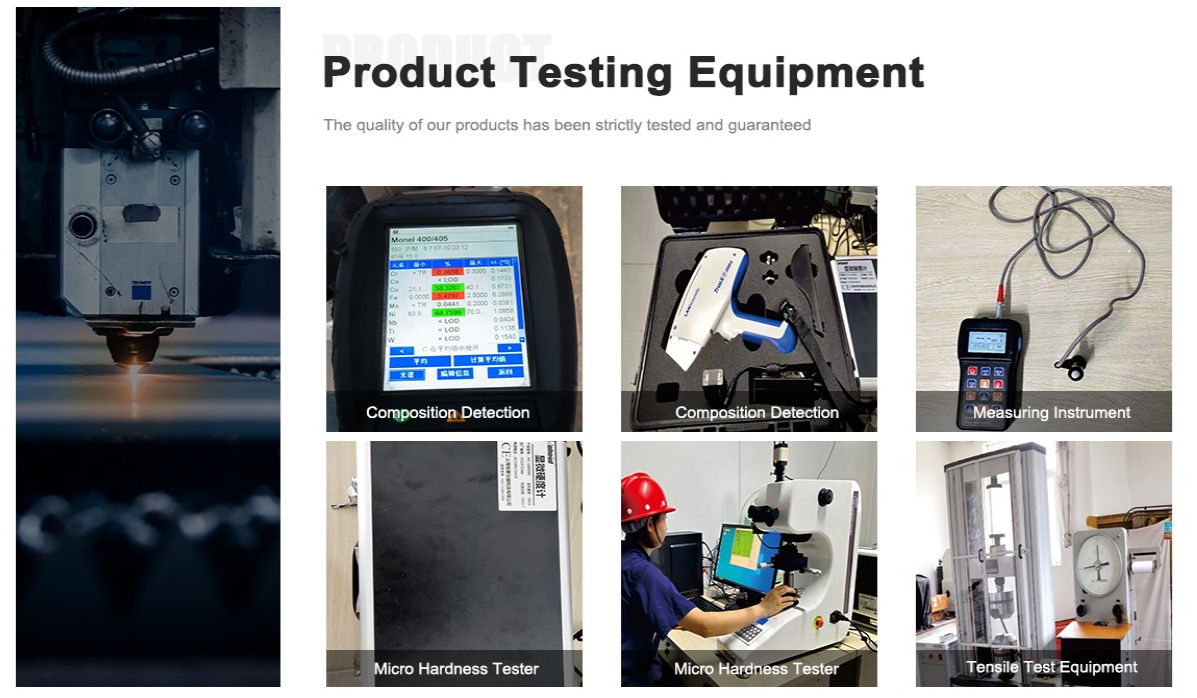
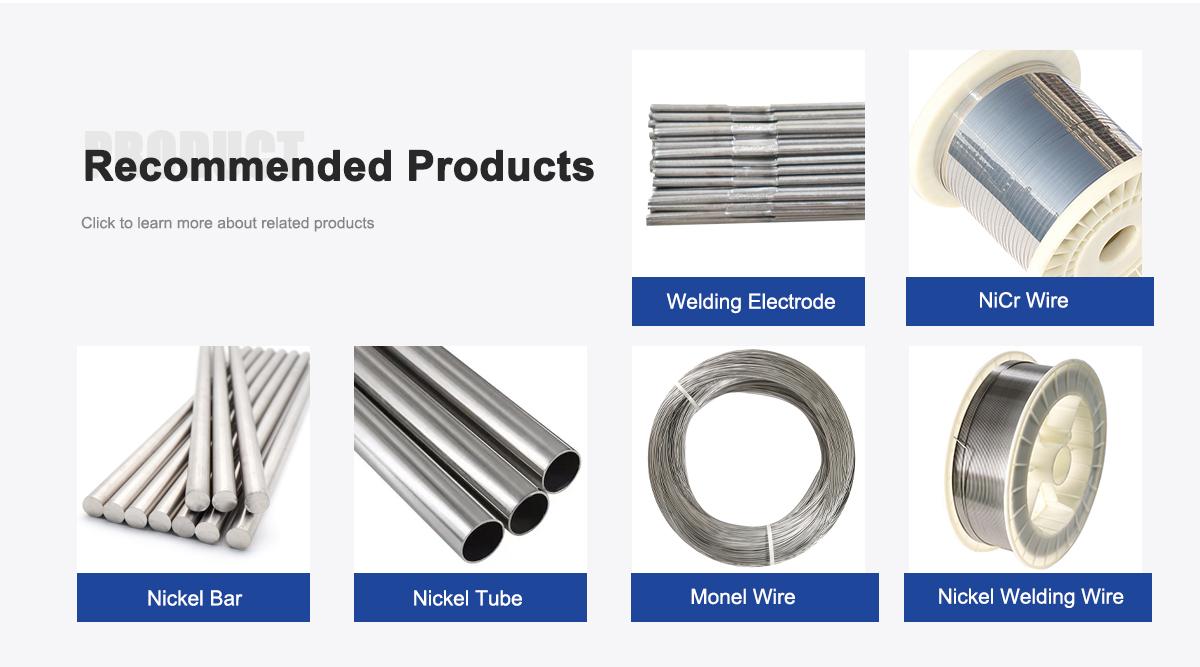
About Us:
Our 12,000㎡ factory is equipped with complete capabilities for research, production, testing, and packaging. We strictly adhere to ISO 9001 standards in our production processes, with an annual output of 1,200 tons. This ensures that we meet both quantity and quality demands. Furthermore, all products undergo rigorous simulated environment testing including high temperature, high pressure, and corrosion tests before being dispatched, ensuring they meet customer specifications. We also provide chemical analysis reports for every FeCrAl alloy, NiCr alloy, and other products purchased.
For all our clients, we offer timely and multilingual after-sales support and technical consulting, helping you resolve any issues swiftly and efficiently.
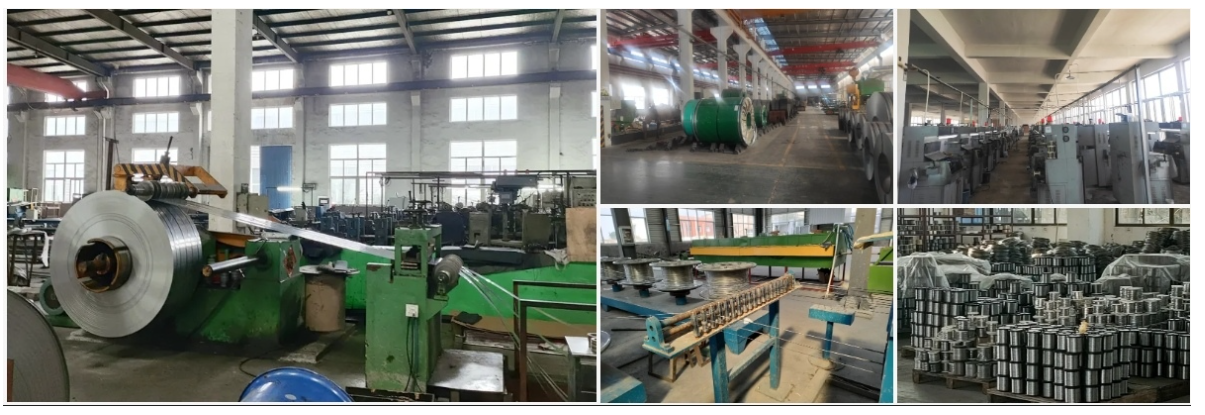
Client Visits
Building Stronger Partnerships
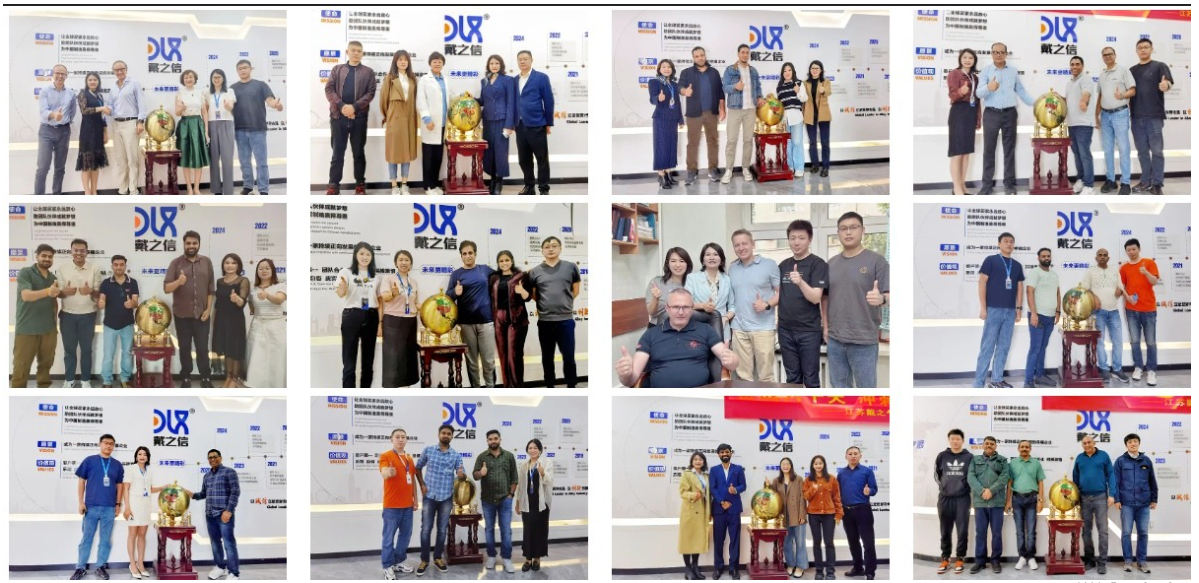
We support all kinds of testing:
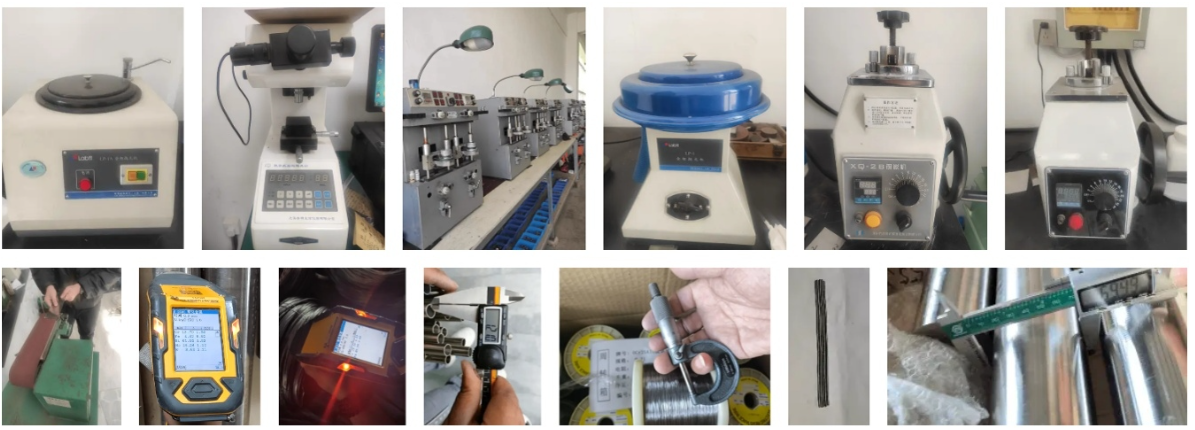

What makes ERCuNi5Fe1 ideal for seawater pipelines?
Its 5% nickel and 1% iron content ensures superior corrosion resistance in salty, marine environments.
Can ERCuNi5Fe1 weld dissimilar metals?
Yes, it’s great for joining copper-nickel alloys to steel or other metals with strong, reliable welds.
What industries use ERCuNi5Fe1 wire?
It’s used in marine, chemical processing, and power generation for corrosion-resistant welds.
How does ERCuNi5Fe1 compare to ERCuAl-A1?
ERCuNi5Fe1 excels in seawater corrosion resistance, while ERCuAl-A1 is better for wear-resistant surfacing.
Is ERCuNi5Fe1 suitable for high-temperature applications?
Yes, it maintains strength and corrosion resistance in elevated temperatures, like in heat exchangers.
What shielding gas works best with ERCuNi5Fe1?
Pure argon at 15-20L/min is ideal for TIG welding to ensure a stable arc and clean welds.
Can ERCuNi5Fe1 be used in automated welding?
Absolutely, its smooth feed and stable arc make it perfect for robotic TIG systems.
Why choose ERCuNi5Fe1 over ERCuSi-A?
ERCuNi5Fe1 offers better corrosion resistance for marine applications, while ERCuSi-A suits milder environments.
Our ERCuNi5Fe1 TIG welding wire is a game-changer for seawater pipeline welding and other corrosion-heavy applications. Its durability, corrosion resistance, and versatility make it ideal for marine, chemical, and power generation projects. With trends leaning toward sustainability and automation, our wire keeps you ahead of the pack. Choose us for quality, consistency, and welds that thrive in the toughest conditions.